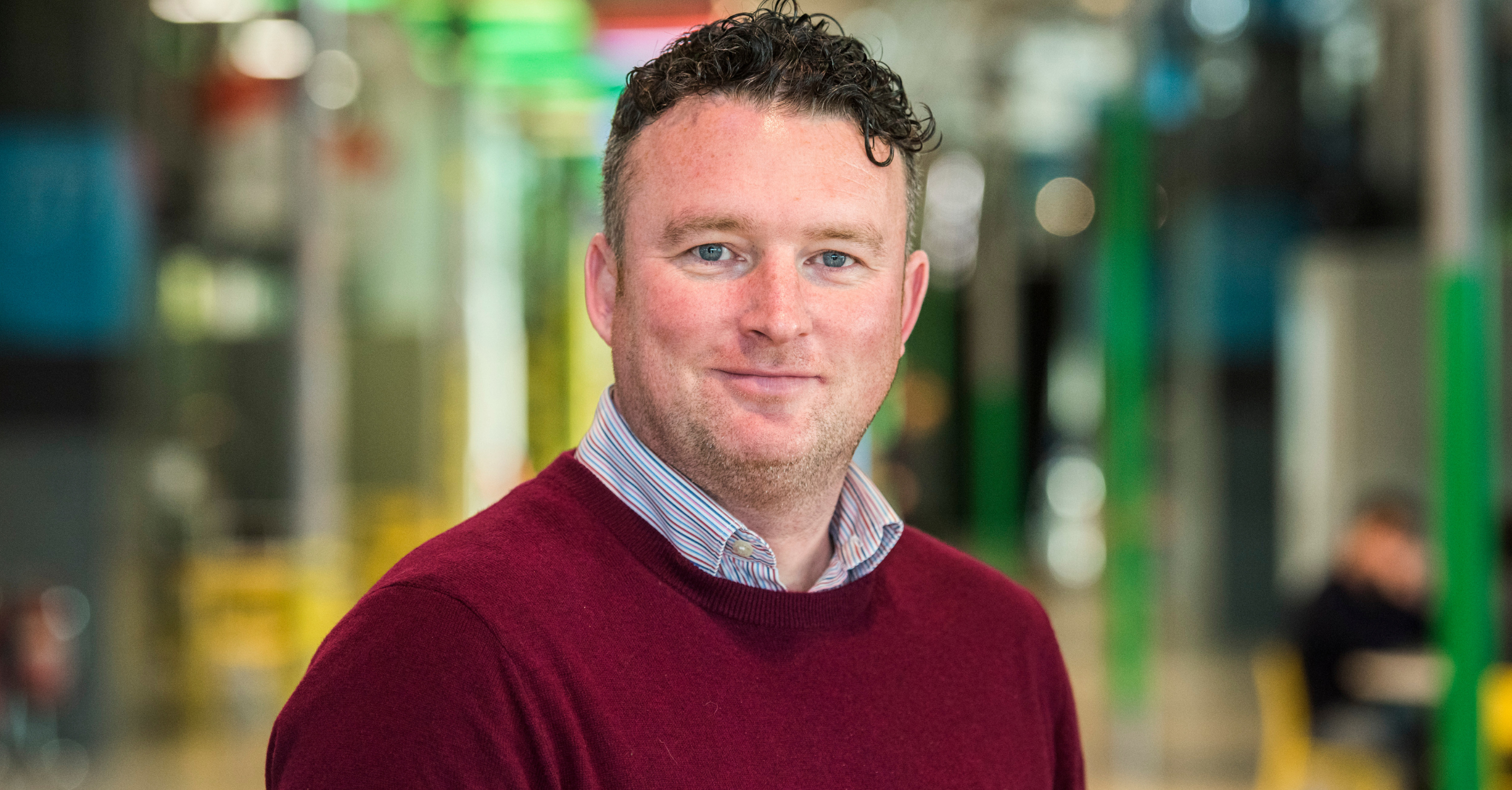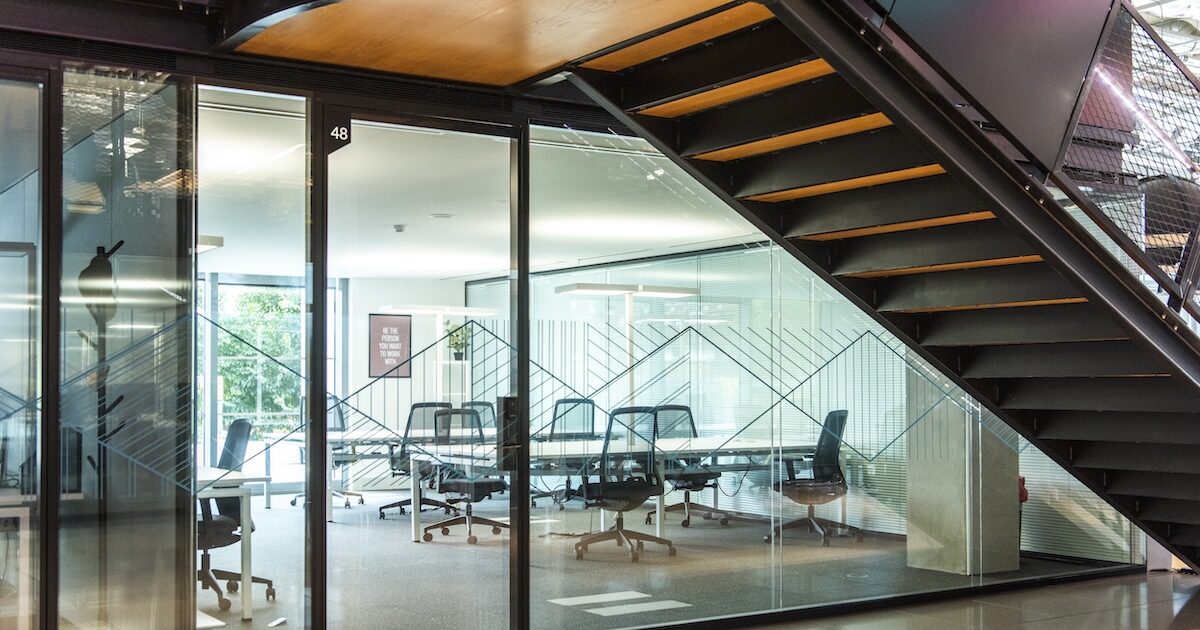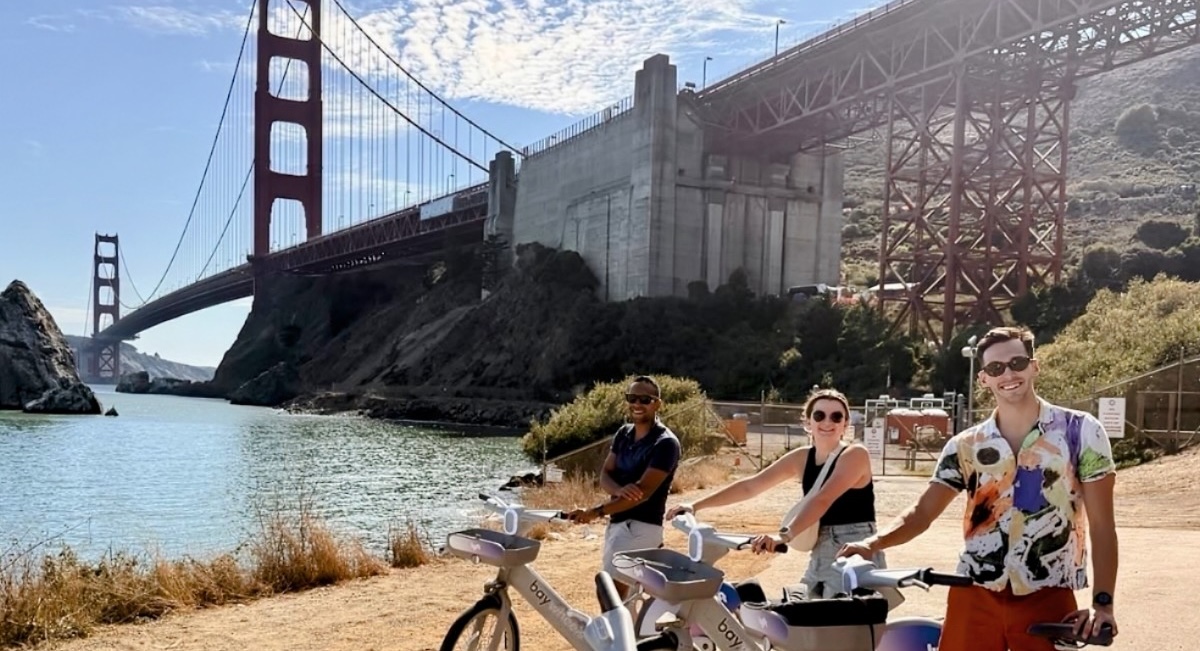Our CEO reflects on the role he should play when it comes to making the internet better, Plexal’s journey and what makes collaboration work.
Catching up on the news on his phone as he waits for his 6am train to work, Andrew Roughan stops to consider all the big and small ways the internet has made life better for people in such a short period. But he also thinks about the problems the internet is ridden with, from disinformation sweeping across social media platforms to bullying, privacy trade-offs and revenge porn.
It’s not the first time Andrew has thought about what a good internet looks like and the role he can play. Having worked in telecoms for over a decade, he was struck at the time by how omnipresent networking and the cloud was becoming and how it was radically transforming major industries in ways people hadn’t predicted. Big changes in connectivity were making some companies that couldn’t keep up with the pace of innovation obsolete while creating new unicorns in the blink of an eye. “Seeing this play out in telecoms made me realise just how unpredictable and disruptive tech can be and how it creates winners and losers,” he says. “It made me think about how I can be useful, make a positive impact and help people navigate all this change.”
And although he’s reluctant to refer to himself as a tech leader (even though Computer Weekly and his peers think otherwise), he feels a sense of responsibility to do the right thing not just for Plexal’s clients and team but for society. “This might sound slightly arrogant, but I think the people who get it feel a real responsibility to make technology work better for society.”
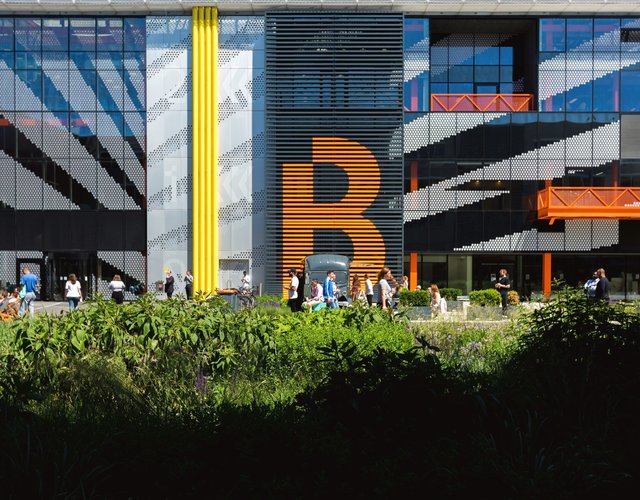
The answer for Andrew throughout his career has always been collaboration – but with a sense of shared purpose.
He was part of the team that designed and launched Here East – London’s answer to the question of how to create a collaborative innovation ecosystem as part of the post 2012 Olympic Games legacy aims. And once Here East became a bustling campus where executives from Ford brushed shoulders with dancers from Studio Wayne McGregor or robotics students from UCL, Andrew was hungry for a new challenge. So, in 2018, he began heading up the campus’ innovation business, Plexal.
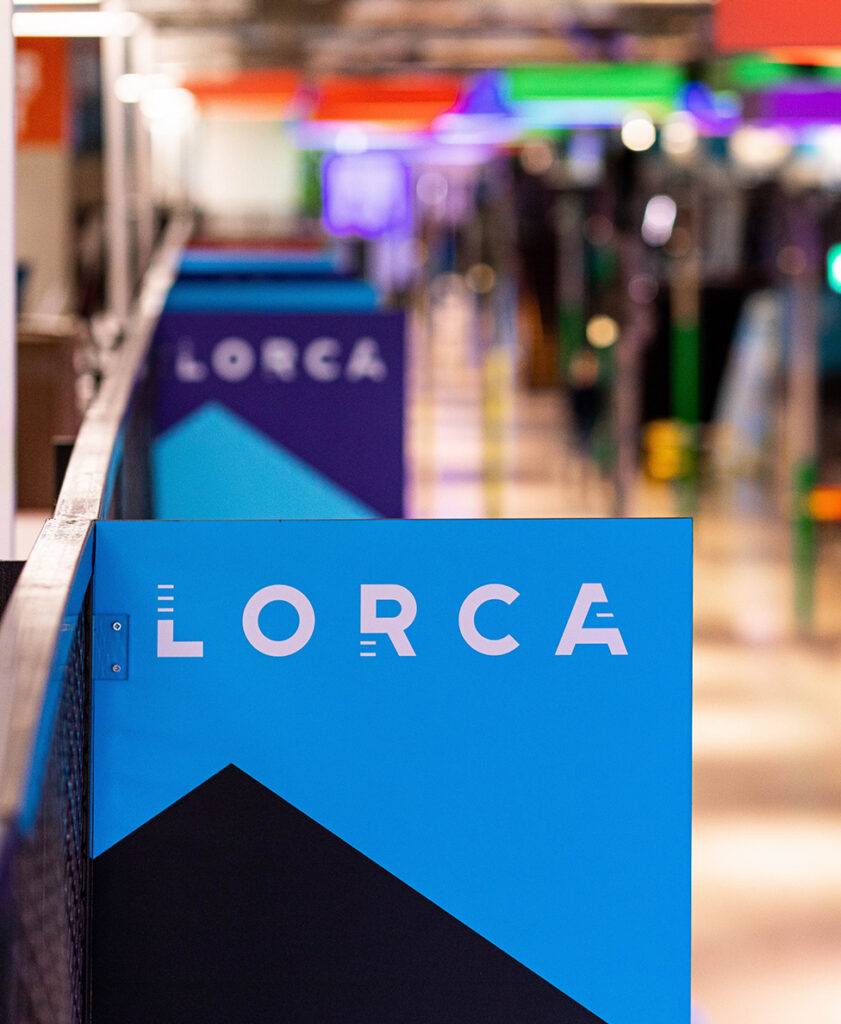
It wasn’t plain sailing from the start, though. When Andrew first took over Plexal’s innovation consultancy, we had just been tasked by the government to deliver a major £13.5m cyber security programme, our biggest project so far by a long mile. But we didn’t have a strategic focus. Andrew knew things had to change.
He decided to stop saying yes to delivering one-day workshops for innovation teams that wanted a day out of the office to slap sticky notes on walls. The workshops paid relatively well and were easy to rinse and repeat, but they weren’t solving major problems. Andrew was convinced that we could have a far bigger impact if we took a more challenge-led approach.
Initially, Andrew steered the team towards three key areas: cyber security, the future of transport and inclusive innovation. Plexal’s work in cyber security has been a runaway success: we now deliver major government-funded cyber programmes like NCSC For Startups, LORCA and Cyber Runway and count everyone from Dell Technologies to Lloyds Banking Group as clients.
But while the cyber business soared, transport and inclusive innovation projects were thin on the ground. As the team became increasingly restless, Andrew became concerned that Plexal was betting its chances in the wrong areas.
“I could sense the team was getting frustrated,” he says. “We thought these were two areas that were ripe for innovation and we felt we could make a positive difference. But the client just wasn’t there yet. Everyone was really interested in having fascinating conversations with us, which always got us excited and kept the hope just alive enough, but nobody was willing to fund the next step. It was a real lesson for me that even though you can spot an opportunity and something matters to society, you can’t create markets out of nothing.”
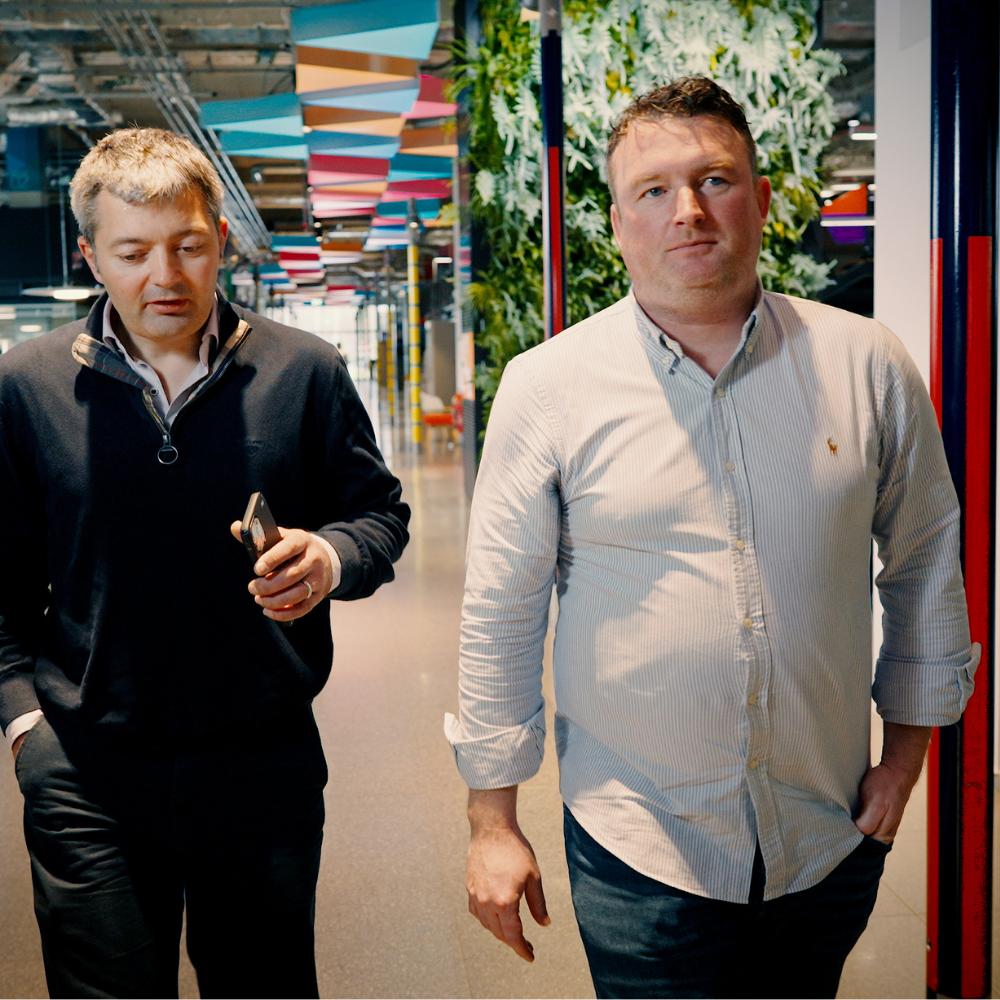
Cue another course change.
Sticking with a challenge-led approach, Andrew decided that Plexal would only work in areas where there were already leaders who were highly motivated and capable of stimulating change.
Building on Plexal’s cyber success, we expanded into addressing national security challenges more broadly, as well as what Plexal refers to as government-led innovation: helping public and private sector clients understand what technology or policy means for them, spotting market opportunities and co-creating solutions within an ecosystem.
“The client can take on different guises, but you should always be able to identify who they are and then become passionately embedded in their mission, their challenge,” he says. “Only then can you design a solution and galvanise the right partners.”
Andrew now finds himself at the centre of a tech ecosystem that spans government clients, industry giants, startups, investors and major academic institutions. Plexal’s role is bringing everyone together and making it possible for them to build new technology, understand their market or solve a particular challenge. “I’ve always been good at joining the dots – seeing a link between a shiny new piece of technology and a burning problem someone is facing, or how a civil servant sitting at a desk in Whitehall might be able to work with a startup in Edinburgh that’s still flying under the radar.”
And it’s that ability to spot connections or collaboration opportunities that drives clients to share their innovation problems with Andrew and Plexal’s members to book in 1:1 time with him. Always ready to get out his little black book of contacts or whip out the whiteboard to brainstorm a solution, he’s still driven by a desire to be useful. When MOONHUB needed an investor, Andrew facilitated the introduction to Sports Interactive’s Miles Jacobson. When V&A East wanted advice on an upcoming exhibition, Andrew shared his ideas. And when My Life My Say and BADU invited him to sit on their board, he jumped at the chance.

Under Andrew’s leadership, Plexal has also developed a new model for collaboration between SMEs and Big Tech that’s being used by the likes of IBM and Amazon Web Services. With his moral compass directing him as always, Andrew has made sure that fairness is at the heart of any SME-Big Tech collaboration. For example, we’ve designed a contracting system that protects the intellectual property for everyone and makes sure the SME gets paid.
Plexal is now forecasting significant growth in London and in our regional offices in Manchester and Cheltenham. “It was a bit touch and go for a period, which as a leader is hugely stressful, but we’ve really cracked the model and our clients are excited about what we’re doing together,” he says.
And that gives Andrew time to think, look ahead… and worry. In particular, about the pesky problem of improving the internet and making technology in general work better for people.
He’s well aware that this is an important moment when it comes to the future of the internet. China’s presenting a competing vision and we’re asking difficult questions about how to make it safer. “If we get it right this will be a notable age for humanity,” says Andrew. “If we get it wrong, this will be the period in history that unleashes dystopian outcomes. The internet has been hugely beneficial to economies but has a lot more work to do to serve people. Its original inventors didn’t know what it was going to become, otherwise they might have put more guardrails in place.”
But Andrew remains optimistic about the future, in particular the big, bold steps the UK’s willing to take to become the safest place to be online and the way the government is stimulating important parts of the tech sector. “If we can collaborate in the right ways, this could be a huge moment of opportunity for the UK to work with other countries to use tech as a force for good in the world and solve really big problems.”
